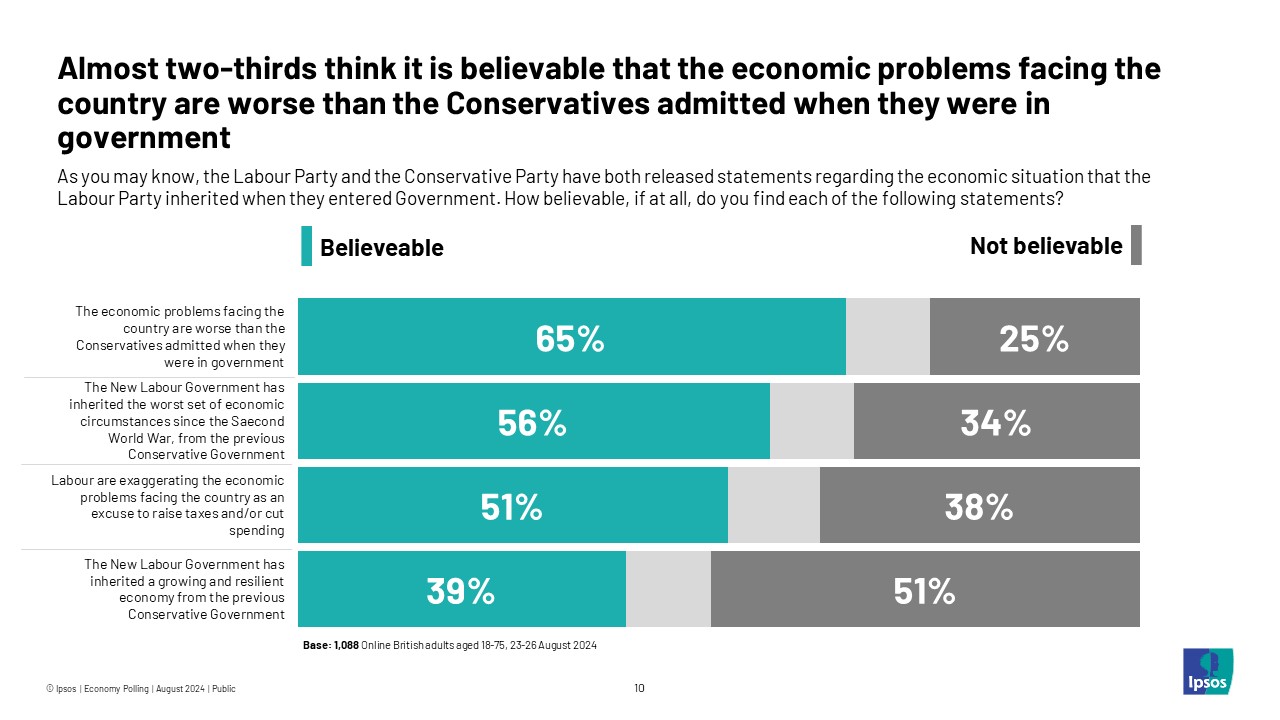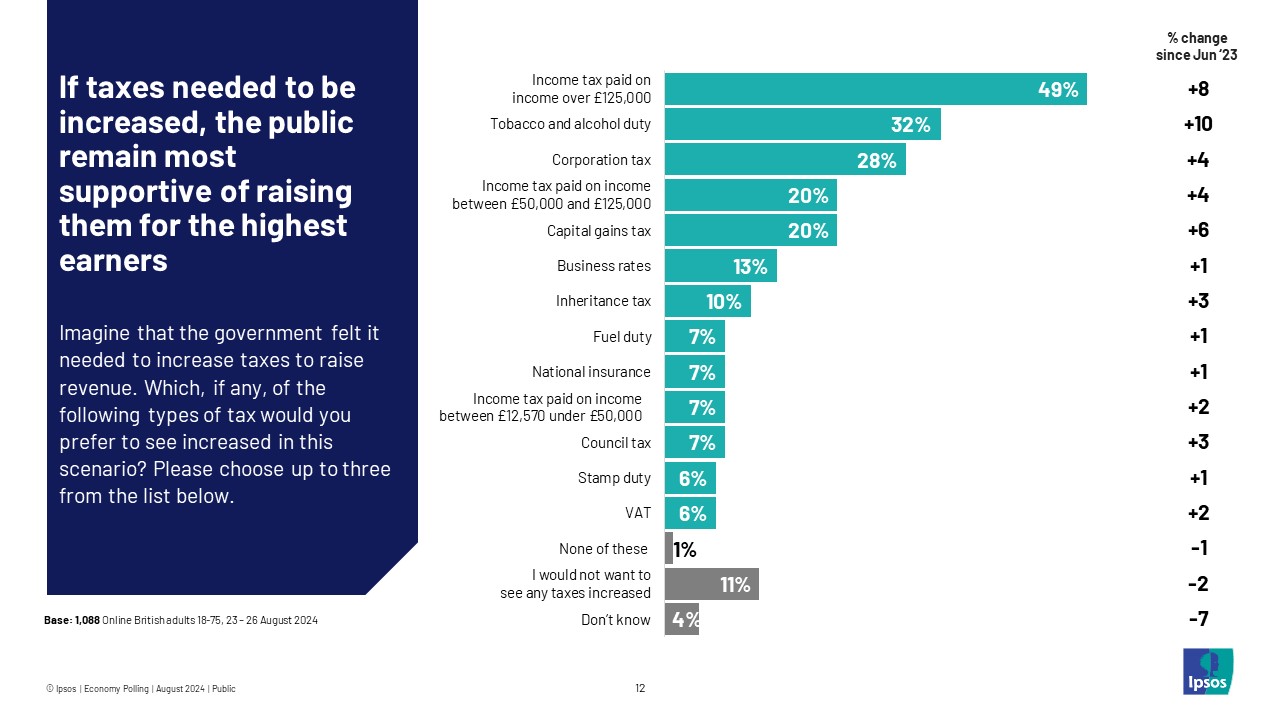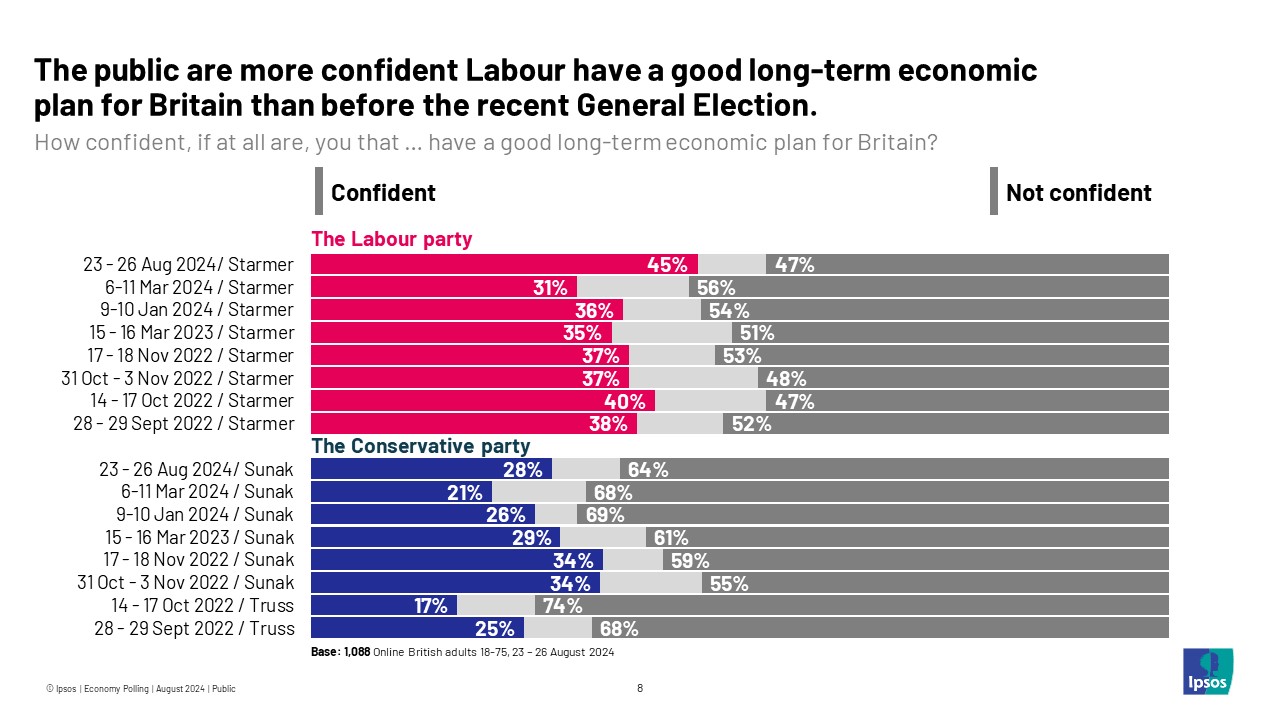Two-thirds believe economic problems are worse than Conservatives admitted - tax rises expected
- 65% believe Starmer’s claim that economic problems are worse than Conservatives let on in office
- 75% believe that Labour will increase the taxes that they personally pay
- Just over half (55%) expect increases to spending on public services
New polling by Ipsos, taken August 23-26, examines attitudes towards the British economy and the situation inherited by Keir Starmer’s Labour government.
Overall, 69% say the current state of the British economy is poor, with just 29% saying it is good (net -40). Those saying the economy is in poor shape are most likely to blame the impact of the COVID-19 pandemic (54%), Brexit (49%), the Conservatives’ policies in government since 2010 (49%) and the policies of Liz Truss and Kwasi Kwarteng (48%). Those who say that the economy is in a good state are most likely to credit the productivity of British workers (36%) and the state of the global economy (35%). Three in five (60%) say that levels of inflation are most likely to influence their view on how the economy is doing, while 48% cite interest rates as the most important factor.
In a recent major speech, Prime Minister Keir Starmer blamed the previous Conservative government for leaving the economy in a poor state. 65% of Britons find it believable that the economic problems facing the country are worse than the Conservatives admitted when they were in government, and 56% believe the new government’s claim that they have inherited the worst set of economic circumstances since the Second World War. Even so, half (51%) believe that Labour is exaggerating the economic problems facing the country as an excuse to raise taxes and/or cut spending.

Three quarters (75%) believe that Labour is likely to increases the taxes that they personally pay – up significantly from 56% in May. Just over half (55%) believe they are likely to increase spending on public services, down slightly from 59% in May.
If taxes are increased, the public are most supportive of raising income tax for high earners (49%), tobacco and alcohol duty (32%), and corporation tax (28%).

Overall, Labour remains more trusted than the Conservatives to manage Britain’s economy. 38% say they trust Labour most, versus 24% who trust the Conservatives (a lead of 14 points). In February these figures were 33% for Labour and 21% for the Conservatives – a lead of 12.
Public confidence in the Labour party's long-term economic plan for Britain has risen since the general election. 45% say they are confident that the party has a good long-term economic plan for Britain, up from 31% in March. However, the public are divided over how Rachel Reeves has been doing as Chancellor of the Exchequer. 27% say she is doing a good job, while 29% say she is doing a bad job (29% don’t know).

Commenting on the findings, UK Director of Politics at Ipsos Keiran Pedley said:
These findings show there is significant public sympathy for Keir Starmer’s argument that the economy is in a worse shape than the Conservatives let on in office, likely reflecting the unpopularity of the outgoing Conservative government. However, whilst the public expect tax rises, they also expect more money for public services too. This suggests that the Labour government will ultimately be judged on how much it can improve public services – and the economy generally – regardless of the situation when it took office.
Technical note
Ipsos interviewed a representative sample of 1,100 adults aged 16-75 across Great Britain. Polling was conducted online between 16-20 August 2024. Data are weighted to match the profile of the population. All polls are subject to a wide range of potential sources of error.






